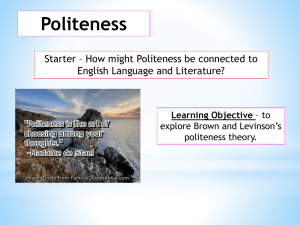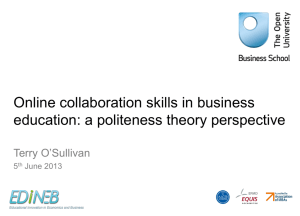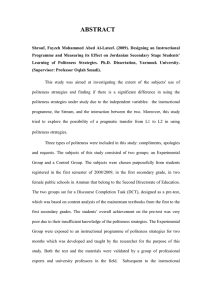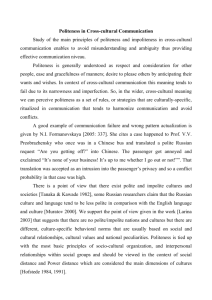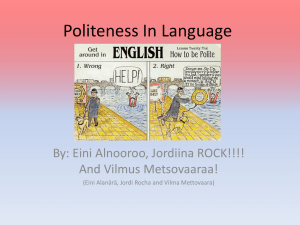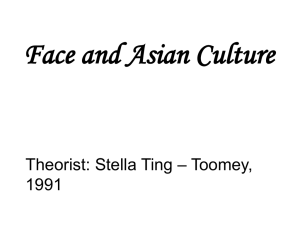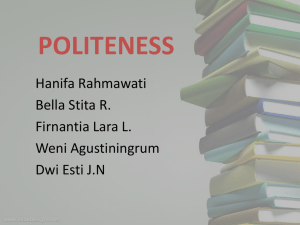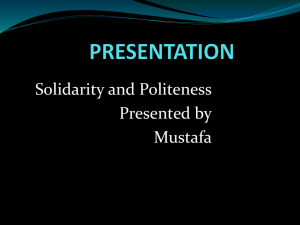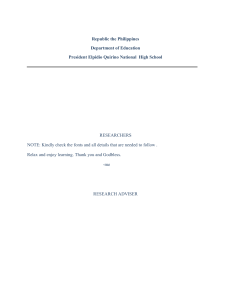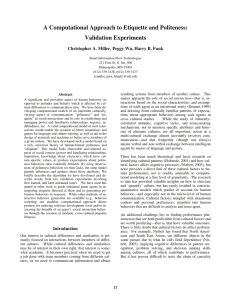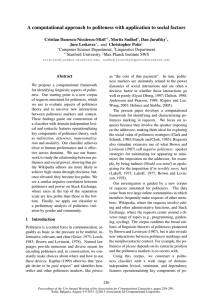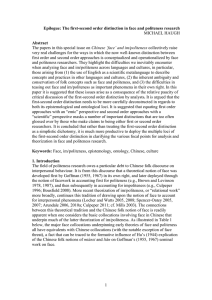Document 13381317
advertisement
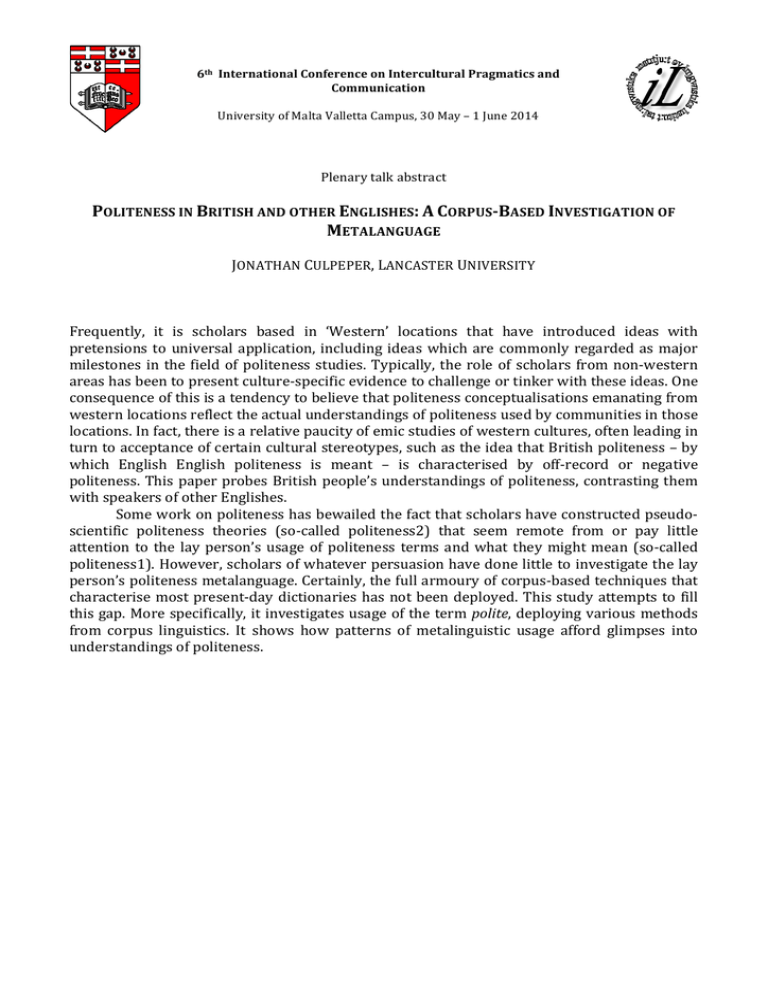
6th International Conference on Intercultural Pragmatics and Communication University of Malta Valletta Campus, 30 May – 1 June 2014 Plenary talk abstract POLITENESS IN BRITISH AND OTHER ENGLISHES: A CORPUS-­‐BASED INVESTIGATION OF METALANGUAGE JONATHAN CULPEPER, LANCASTER UNIVERSITY Frequently, it is scholars based in ‘Western’ locations that have introduced ideas with pretensions to universal application, including ideas which are commonly regarded as major milestones in the field of politeness studies. Typically, the role of scholars from non-­‐western areas has been to present culture-­‐specific evidence to challenge or tinker with these ideas. One consequence of this is a tendency to believe that politeness conceptualisations emanating from western locations reflect the actual understandings of politeness used by communities in those locations. In fact, there is a relative paucity of emic studies of western cultures, often leading in turn to acceptance of certain cultural stereotypes, such as the idea that British politeness – by which English English politeness is meant – is characterised by off-­‐record or negative politeness. This paper probes British people’s understandings of politeness, contrasting them with speakers of other Englishes. Some work on politeness has bewailed the fact that scholars have constructed pseudo-­‐ scientific politeness theories (so-­‐called politeness2) that seem remote from or pay little attention to the lay person’s usage of politeness terms and what they might mean (so-­‐called politeness1). However, scholars of whatever persuasion have done little to investigate the lay person’s politeness metalanguage. Certainly, the full armoury of corpus-­‐based techniques that characterise most present-­‐day dictionaries has not been deployed. This study attempts to fill this gap. More specifically, it investigates usage of the term polite, deploying various methods from corpus linguistics. It shows how patterns of metalinguistic usage afford glimpses into understandings of politeness.
